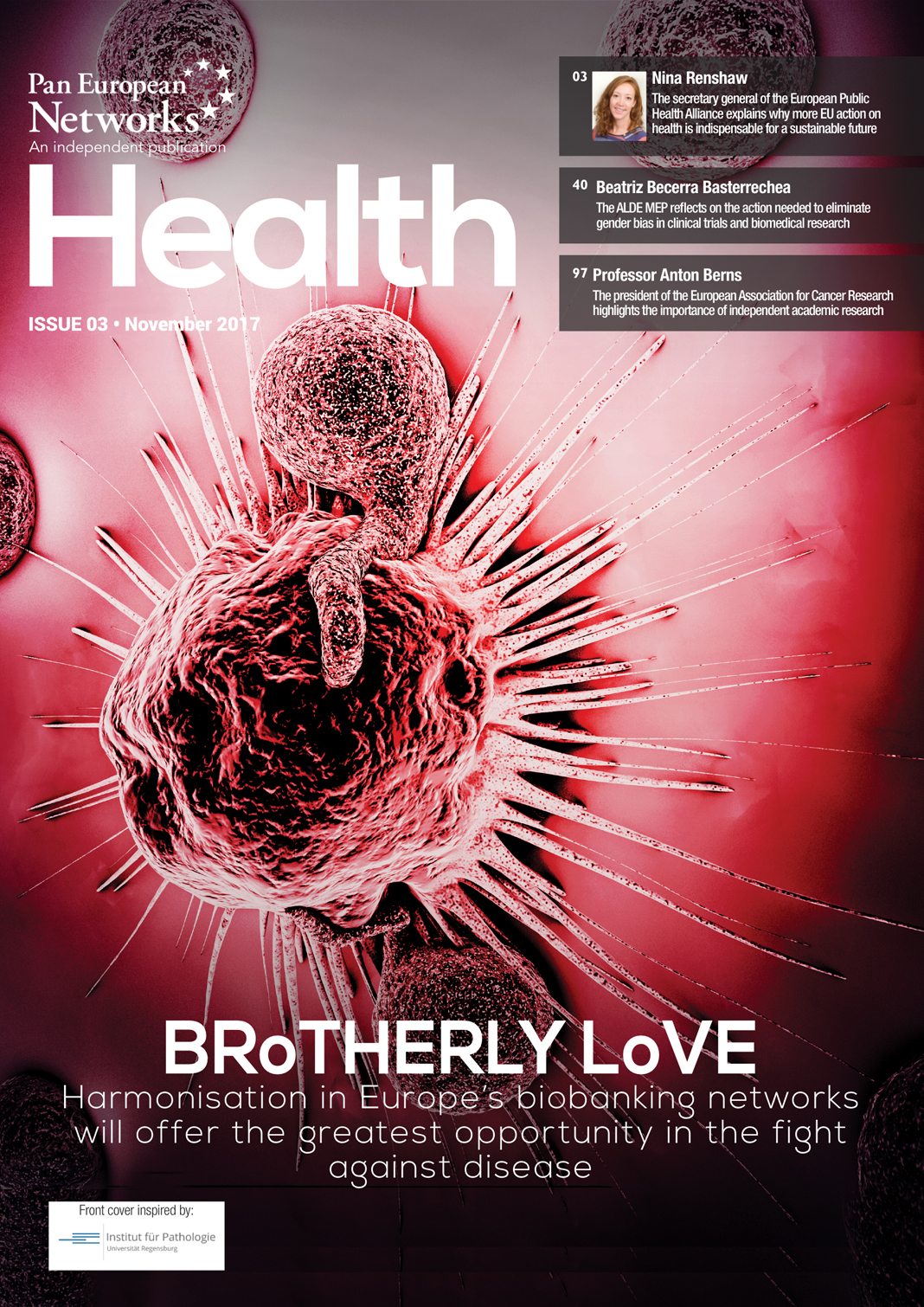The third edition of Health focuses on areas such as women’s health, emergency medicine and neuroscience. It also features a foreword from Nina Renshaw, the secretary general of the European Public Health Alliance, who discusses the health sector’s importance in the EU and whether more can be done to improve health policies.
How does gender inequality impact on health and care?
- Amy Little, executive lead of the Global Alzheimer’s & Dementia Action Alliance, calls on world leaders to recognise dementia as a global women’s health, social care and rights issue, as cases of the disease near 50 million worldwide;
- Christina Antoniadi, of the European AIDS Treatment Group, explains the importance of promoting the strong and meaningful involvement of women in HIV research and development, in recognition of the fact that more than half of all adults living with HIV are women;
- Pirkko Mahlamaki, of the European Disability Forum, argues that the sexual and reproductive health and freedom of women and girls with disabilities are being limited due to prejudicial thinking; and
- Beatriz Becerra Basterrechea, an MEP for the Alliance of Liberals and Democrats for Europe (ALDE), sets out why the EU and European public health policies need to adopt a fair, gender-equal perspective.
What will healthcare look like in the future?
- Professor Jens K Habermann, director of the Interdisciplinary Center for Biobanking-Lubeck and president-elect of the ESBB, looks at the current and future role of hospital-integrated biobanks for precision medicine in cancer;
- Digital technologies are impacting more and more on EU healthcare; Brian O’Connor, chair of the European Connected Health Alliance (ECHAlliance), discusses Estonia’s vision of a Digital Health Society; and
- Professor Anneke Lucassen, chair of the British Society for Genetic Medicine, reflects on the current state of genomics in the UK and looks ahead to the future.
How can we improve the quality of cancer care and research?
- With cancer expected to kill around 13 million people each year by 2030, Professor Anton Berns, president of the European Association for Cancer Research, outlines why collaboration, sustained funding and independent academic research are key to advancing cancer research;
- Patients suffering from cancer are treated for the physical disease but not as much for its psychological implications, argues Maria Die Trill, president of the International Psycho-Oncology Society; and
- Professor Tim Elliott, of the University of Southampton, UK, explains how the institution’s Centre for Cancer Immunology will help bring cancer immunotherapy strategies to more patients.


